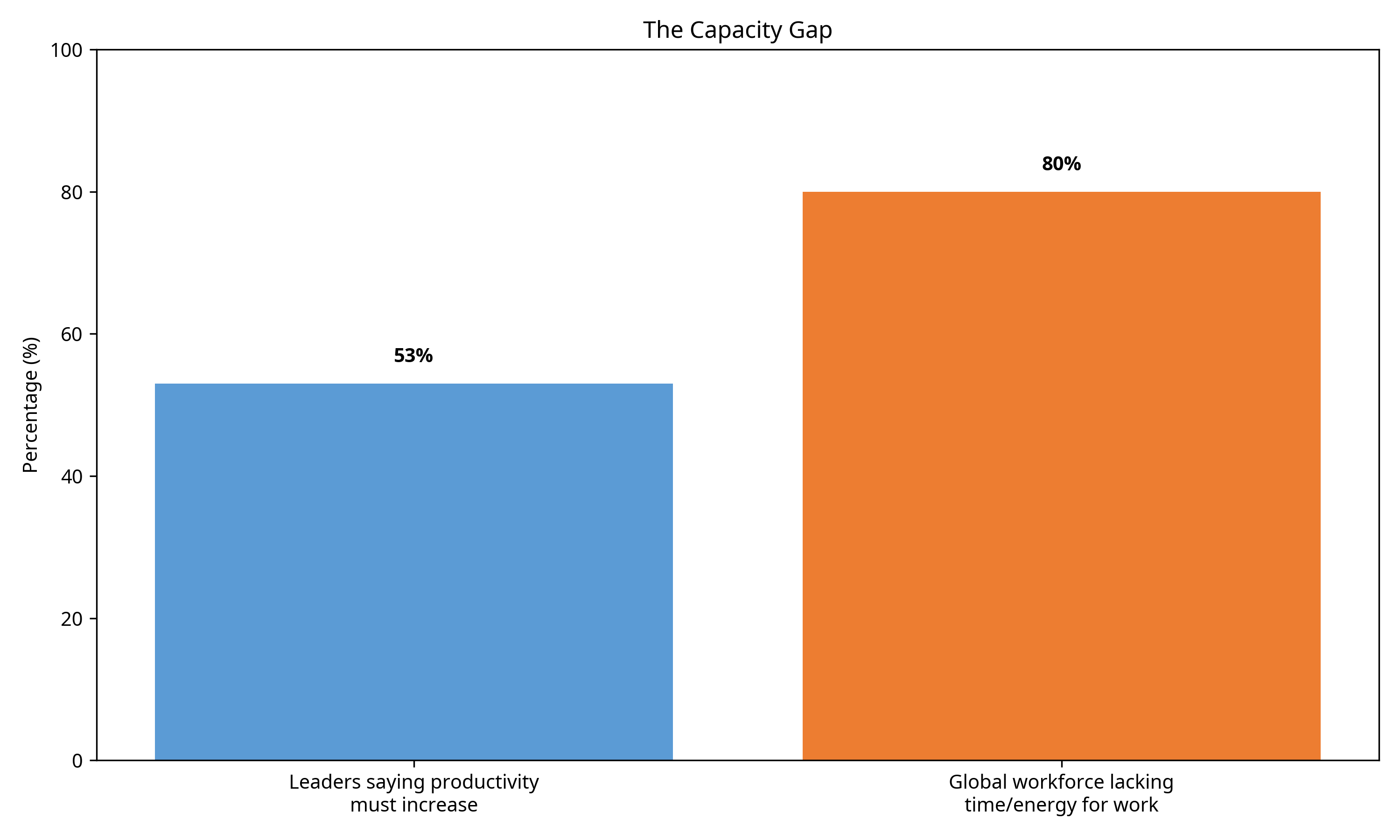You can buy intelligence on tap
Intelligence as a Durable Good
For decades, intelligence was one of the most valuable—and limited—assets in business, bound by human time, energy, and cost. The report argues that this is changing, with intelligence becoming an essential durable good: abundant, affordable, and available on demand.
With AI and agents that can reason, plan, and act as digital labor, companies can scale capacity as needed. Already, 82% of leaders say they're confident they'll use digital labor to expand workforce capacity in the next 12-18 months.

The gap between business demands and human capacity
The Capacity Gap
The report identifies a "capacity gap" between business demands and human capacity:
- 53% of leaders say productivity must increase
- 80% of the global workforce says they lack enough time or energy to do their work
- Employees are interrupted every 2 minutes during core work hours, adding up to 275 interruptions per day
- Nearly half of employees (48%) and more than half of leaders (52%) say their work feels chaotic and fragmented
Frontier Firms Advantage
Organizations identified as "Frontier Firms" are already showing significant advantages:
- 71% of Frontier Firm workers say their company is thriving (vs. 37% globally)
- 55% say they're able to take on more work (vs. 20% globally)
- 90% report having opportunities for meaningful work (vs. 73% globally)
- 93% are more optimistic about future work opportunities (vs. 77% globally)
- Only 21% fear AI will take their jobs (vs. 38% globally)
From global enterprises to small businesses, AI is becoming the engine for scale. The report cites examples including:
- A solo founder on track to earn $2 million with an AI-powered staffing firm
- Dow projecting to save millions in the first year with a supply chain agent that flags misapplied fees
- A five-person startup using AI for construction simulations and market research, boosting margins by 20%
Workforce Strategies
The shift toward intelligence on tap is reshaping workforce strategies:
- Nearly half of leaders (45%) say expanding team capacity with digital labor is a top priority in the next 12-18 months
- This is second only to upskilling their existing workforce (47%)
- While a third of leaders (33%) are considering headcount reductions, 78% are considering hiring for new AI roles
- Top AI startups are growing headcount at 20.6% YOY—nearly twice the pace of Big Tech (10.6%)
The report suggests that much of the talent is flowing out of Big Tech and staying in the startup world, pointing to a deeper shift where innovation and opportunity are rising in the AI sector.